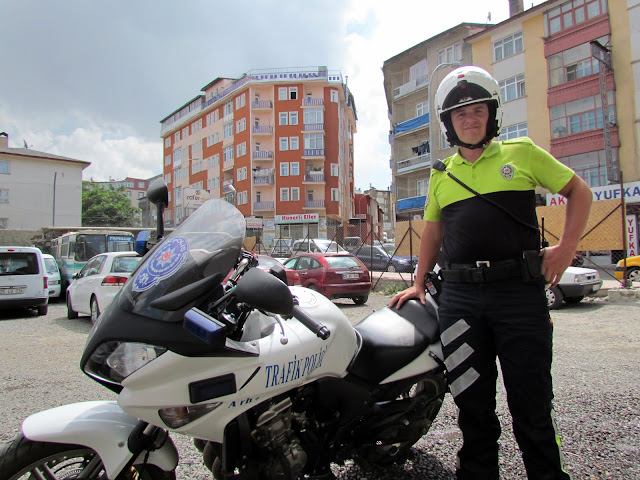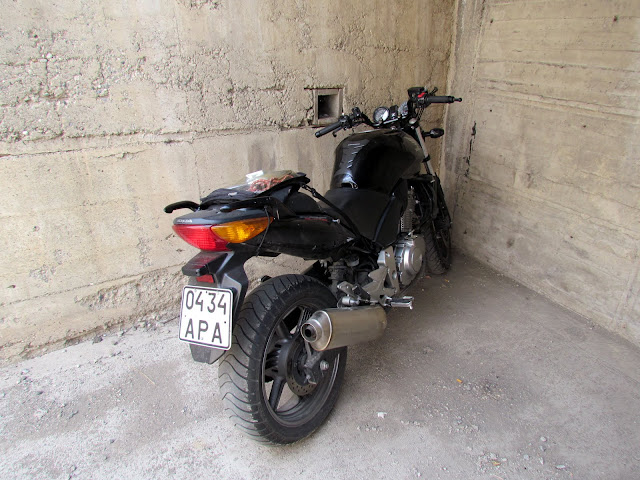Driving in Turkey is challenging. Although the roads are mostly very nice, the driving habits of the local drivers are outrageously bad. According to Lonely Planet: Turkey, Turkey is statistically the world’s number one when it comes to the annual number of motor vehicle accidents.
Now, by saying bad driving I do not by any means imply reckless driving. Or fast driving. Or outlaw driving. I mean just that — bad driving! There is driving outlaw, when you break the laws but still know exactly what you’re doing. And then there is just simple bad driving — when you have no idea, do not check your mirrors, drive in the middle of the lane without being aware of the surrounding vehicles, break unexpectedly, and, perhaps most annoying of all, honk your horn twenty milliseconds after the traffic light turns green. Give it a second!!!!
Yielding? Forget about it! Turn signals? I think the total amount of times I’ve seen anyone use their turn signals on an intersection for a week in Istanbul did not exceed 10. No, I am not missing a zero there!
I always thought that the Armenian drivers are really bad. We definitely break the rules when we feel like we realize what we are doing, and we like driving fast. But driving in Turkey is like a race of survival — there is absolutely no way anyone anywhere can convince me that a bus driver who pulls his wagon straight on a motorcycle at his right possibly knows what he is doing. He just does not appear to give a damn even to check his mirrors. And the worst part is, the police does not seem to be doing anything about it. They just accept it as a fact of life.
If I were to be the head of traffic police in Turkey, I would declare all driving licenses void and start a new process of harsh driving exams. You know you are doing something wrong, when in a neighboring country where the vast majority just buys their driving licenses without any exam at all, people drive better by degrees.
However, speeding on a freeway is punished harshly. When a policeman gives you a ticket for exceeding the speed limit by 3 km/h, you just wanna scream your lungs out — “Dude, have you been to Istanbul?!” But he writes the ticket anyway, and I have noticed that a lot of Turks get the speeding tickets. Also, it goes without saying, there does not even remotely appear to be any corruption when it comes to driver–officer interactions.
The pedestrians are a different story. You think in Yerevan people cross the street wherever and whenever they feel like? Meet Istanbul. It is like an arcade game called “Dodge the Kamikaze”, and it gets pretty old and stressful after several minutes. If I had to live in Istanbul (which I would absolutely love to) and commute on a vehicle to work every day, after about a month I would probably become some sort of a disturbed psychotic maniac.
Now the good news: the roads, on the other hand, are mostly extremely nice. Their quality may vary inside towns, but the freeways are very good, and the signage/markings is great. Closer to Istanbul area they are nearly perfect. After driving for about 3,500kms, I did not encounter a single pothole. It just impresses you when you see the process of laying down the roads in Turkey. I know some Turks complain about the quality of their roads, but they should know that their roads are not worse, if not better, than those in California..
One thing to watch out for on the roads is the reason of my accident. This is, in fact, a good tip, that I would appreciate to have before starting my journey.
In cities where it does not rain very often, the exhaust gases from the cars’ pipes come out and accumulate on the tarmac. I do not understand why we don’t have that problem in Armenia, but in cities like Erzurum or Malatya at some point you feel like riding on ice, not asphalt. For cars it is perhaps not a big issue, but for a two-wheel vehicle it is very easy to skid or lock the wheels. Always watch out for that and drive slowly on slippery surfaces!
Also I am assuming that if rain started with the road being in that condition, it would just be wise to pull over and wait for about 15 minutes till the nasty layer of chemicals is washed off the surface.
And the final tip is, when driving in Turkey, stretch your imagination and expect everything from every member of the traffic. I mean it.
Driving in Turkey has definitely made me sweat. But it was also a good exercise of defensive driving and good reaction. If you are into that kind of stuff, you may actually come to enjoy it!




